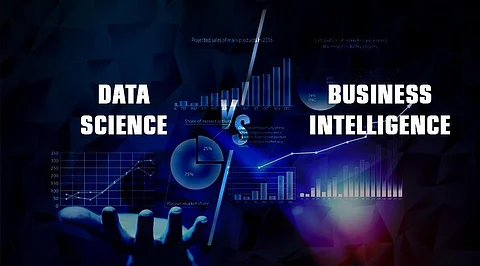

In today's era, we are all mostly hearing about data science and business intelligence and sometimes we feel it difficult to pick one as a career path. In this article, we will see data science vs business intelligence to get an understanding of both.
The concept of using data to drive actions underpins business intelligence. Its goal is to provide actionable insights to business leaders through data processing and analysis. A company, for example, examines its KPIs (key performance indicators) to determine its strengths and weaknesses. As a result, the management team can determine where the company can improve its operational efficiency.
Data-driven decision-making is not a new practice. However, dramatic advances in BI technology imply significant gains in speed, efficiency, and effectiveness. Automation and data visualization are two examples of how technology is transforming the business intelligence process.
Data science entails extracting information from datasets and forecasting. It makes use of machine learning, descriptive analytics, and other advanced analytics tools. Data science begins with the collection and maintenance of data. Secondly, it processes the data using data mining, modeling, and summarization.
The following step it follows is data analysis, which can be accomplished through text mining, regression, descriptive and predictive analytics, and other methods. The patterns hidden in the raw data can be discovered and used to forecast future trends by analysing the data. Some of the roles in data science are data engineers, data visualization specialists, and data analysts.
Both Data science and business intelligence (BI) are data-driven processes, but there are some key distinctions between the two. In general, data science attempts to forecast future trends whereas business intelligence analyses past events. Data science necessitates a more technical skill set than business intelligence. The objective of data science is to extract information from data sets and create forecasts, answers, the queries of what is going to happen or is more likely to happen. Whereas business intelligence focuses on identifying historical trends, and answers questions such as what trends are developing.
For business intelligence, you require basic statistics and business knowledge, visualization skills as well as data transformation. And for data science, you require technical skill sets like data mining, coding, domain knowledge as well as advanced statistics.
Join our WhatsApp Channel to get the latest news, exclusives and videos on WhatsApp
_____________
Disclaimer: Analytics Insight does not provide financial advice or guidance. Also note that the cryptocurrencies mentioned/listed on the website could potentially be scams, i.e. designed to induce you to invest financial resources that may be lost forever and not be recoverable once investments are made. You are responsible for conducting your own research (DYOR) before making any investments. Read more here.
